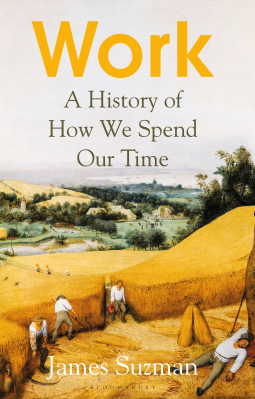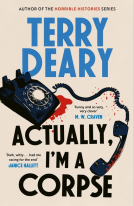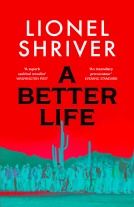
Work
A History of How We Spend Our Time
by James Suzman
This title was previously available on NetGalley and is now archived.
Send NetGalley books directly to your Kindle or Kindle app
1
To read on a Kindle or Kindle app, please add kindle@netgalley.com as an approved email address to receive files in your Amazon account. Click here for step-by-step instructions.
2
Also find your Kindle email address within your Amazon account, and enter it here.
Pub Date 3 Sep 2020 | Archive Date 31 Oct 2020
Bloomsbury Publishing Plc (UK & ANZ) | Bloomsbury Publishing
Talking about this book? Use #Work #NetGalley. More hashtag tips!
Description
A revolutionary new history of humankind through the prism of work, from the origins of life on Earth to our ever-more automated present
The work we do brings us meaning, moulds our values, determines our social status and dictates how we spend most of our time. But this wasn’t always the case: for 95% of our species’ history, work held a radically different importance.
How, then, did work become the central organisational principle of our societies? How did it transform our bodies, our environments, our views on equality and our sense of time? And why, in a time of material abundance, are we working more than ever before?
Leading anthropologist James Suzman charts a revolutionary new history of humankind through the prism of work, from the origins of life on Earth to our ever-more automated present, challenging some of our deepest assumptions about who we are.
Advance Praise
'Automation of all kinds looms on the horizon. Luckily, James Suzman is here with a revelatory new history that makes a persuasive case: that human industry can light a path forward, even in a future where we’re put out of work by our own inventions' CHARLES DUHIGG
'Chronicles how much humankind can still learn from the disappearing way of life of the most marginalised communities on earth' YUVAL NOAH HARARI on AFFLUENCE WITHOUT ABUNDANCE
Available Editions
| EDITION | Hardcover |
| ISBN | 9781526604996 |
| PRICE | £25.00 (GBP) |
Average rating from 13 members
Featured Reviews
 Educator 388984
Educator 388984
This was excellent. It gave me so much food for thought - for example, if machines have helped us be more productive than 150 years ago, why are we still working 40 hours a week rather than, say, 15? How come we grow our food when it could take less time and effort to forage and hunt?
I liked the different chapters and the history of work as a concept, the values we give to work, and the future of work with the development of artificial intelligence. It was well-written and really interesting.
Work by James Suzman is a fascinating book which took a long time for me to read because I had to keep stopping and thinking about the content.
All aspects of the word “work” are explored in Suzman’s wide ranging analysis, from physics to expending energy to careers. The most interesting thread explores the move from a hunter-gatherer economy to agriculture to the industrial revolution and now the post-industrial knowledge economy and (maybe) the dying days of capitalism.
A recommended read for the thoughtful.
Thanks to the author, publisher and NetGalley for providing a review copy in exchange for honest feedback.
Readers who liked this book also liked:
Agatha Christie
General Fiction (Adult), Historical Fiction, Mystery & Thrillers
Rick Riordan; Mark Oshiro
Children's Fiction, LGBTQIA, Teens & YA


















